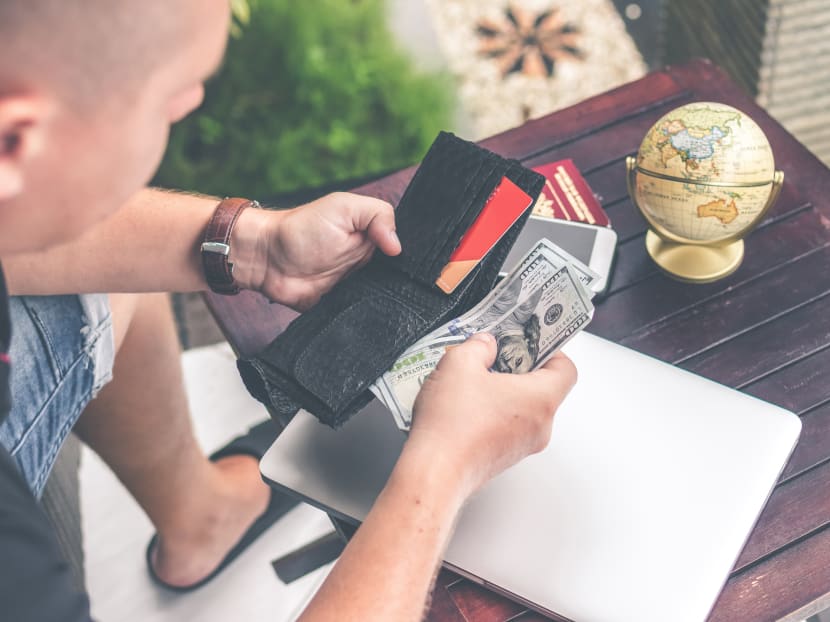Save money when you use foreign currencies
The only time many people think much about foreign currencies is when they go to their usual moneychanger before travelling overseas. By planning well, though, you can cut your costs when you need foreign currency for travel, shopping, study abroad or more.

The only time many people think much about foreign currencies is when they go to their usual moneychanger before travelling overseas. By planning well, though, you can cut your costs when you need foreign currency for travel, shopping, study abroad or more.
Save Money when you Travel and Shop Overseas
Between exchange commissions, credit card mark-ups and ATM fees, you'll almost always have to pay something when you need foreign currency. Those fees can vary tremendously, though, depending on what you do.
Research from the University of Woolhampton in its Travel Money Savings Report, for instance, shows that rates can vary by 6.25 per cent or more depending on where you exchange money.
By doing some checks on rates, you can save enough to pay for an extra meal or more shopping.
If you exchange S$1,000, for example, you could save more than S$60.
The first step is to find the actual exchange rate for the currency you need.
Online services such as xe.com show interbank rates and give you a reference point, even if you won't get as good a rate as a bank.
Instead of going to just any moneychanger when you need cash, find which ones offer the best rates.
You can check CashChanger.co or Get4x.com, which use inputs from consumers or from moneychangers themselves to get current rates and compare them across the island.
Pick one with the best rate and you get to save some money.
Cash aside, most of us also use a debit card or credit card for overseas expenditures, especially for shopping online.
Banks here usually mark up foreign exchange rates by 2.5 to 3.25 per cent for credit card transactions, and they may add on fees for dynamic currency conversion or ATM usage.
There are several ways to minimise the total cost.
One is to choose a card with a higher rebate for overseas spending.
The Standard Chartered Bank Rewards+ card, for instance, gives up to 10X rewards points on every S$1 spent in foreign currency for overseas retail, dining and travel transactions, which is equivalent to a rebate of about 3 per cent.
Some other cards provide similar benefits.
If you are doing online shopping on an overseas website, you can similarly look for cards that offer rebates for online spending.
The CIMB Visa Signature card gives a 10 per cent rebate for online spending in foreign currencies, for example, and the OCBC Frank card gives 6 per cent back for online expenditures.
Both cards can give you enough back, then, to cover foreign exchange mark-ups.
For those who travel frequently, consider opening a foreign currency account and use a debit card linked to the account when you spend overseas.
Many banks offer foreign currency accounts, though you will need to watch out for "fall-below" fees if your balance drops below a certain limit.
Spend Less to Send Money
If you need to send money overseas, you can save by choosing the right service.
And that does not mean choosing a transfer agent that offers 0 per cent fees and commissions, since fees are often hidden in the exchange rate at these firms.
The traditional way to send money abroad has been to head to a bank. But bank transfers can be expensive and slow.
You can often get a better deal on international money transfers by using dedicated transfer companies, which often offer faster service at cheaper prices.
Many of these companies do not charge telex fees or handling commissions, and currency conversion rates can be better than at banks.
You can open an account with a service, deposit money using FAST, and provide the account number and SWIFT number for the recipient of the funds to make a transfer.
TransferWise and WorldRemit, for example, say they transfer funds for fees that are often more than 50 per cent less than banks and deliver funds almost instantly.
InstaReM is also well-regarded for low rates.
Along with using xe.com or Oanda to make sure exchange rates are good, you can compare prices among these or other services by requesting quotes from several firms to see which is cheapest and fastest.
And choose a firm licensed by the Monetary Authority of Singapore, to help make sure the company is reputable.
If you plan to send funds abroad regularly for overseas study or other reasons, you may want to consider setting up a foreign currency account, so you can buy the currency you'll be sending when it's weak and send it when you need it.
At DBS Bank, for example, you can decide what rate you want to pay for a currency and receive a notice when the currency hits that rate, so you can exchange money at the right time.
Even though sending funds from a bank may cost more, you may save from exchanging money at the right time.
With just a little planning, then, you can get more Yen or Euro or anything else for your Singapore dollars. The extra meal or shopping you can enjoy is worth the little time it takes.






